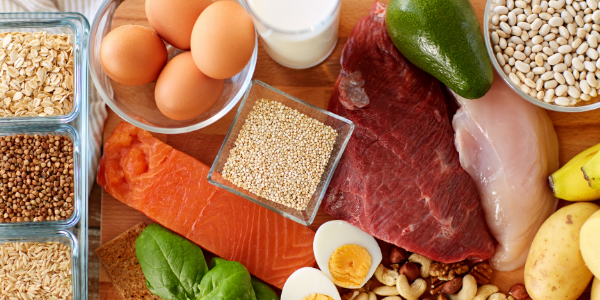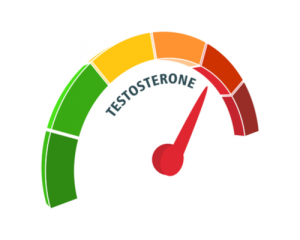Testicular function and its dietary implications are crucial for developing and maintaining masculinity, libido and overall health. Testosterone levels increase lean muscle mass, but protein intake must be carefully balanced. This article will examine how your body metabolizes testosterone and why it’s critical for people on a high-protein diet to get suitable protein.
What Is Testosterone?
Testosterone is a natural hormone produced by the human body. It is responsible for male characteristics, such as facial hair and a deep voice. Testosterone is produced in equal amounts in both men and women. However, testosterone develops the male reproductive organs such as the testes and prostate in the male body and promotes secondary sexual characteristics, including muscle, a deep voice and bone mass. Testosterone is also beneficial to one’s overall well-being, and it aids in preventing osteoporosis.
Men’s testosterone levels tend to drop as they get older. This decrease is sometimes accompanied by a drop in sexual desire, a loss of muscle mass and increased body fat. These changes are frequently linked to a condition known as hypogonadism. In these cases, your doctor may suggest testosterone replacement therapy to help you manage your symptoms.
The Importance of Testosterone
As several factors can cause testosterone to drop, the most common cause is getting older, and this causes our body’s natural ability to maintain high testosterone levels to decline. In fact, by the time a man reaches 30, his testosterone will have decreased by as much as 2% annually.
This decrease in testosterone is not to be feared or overlooked. Testosterone serves a variety of functions in a man’s body, including:
Lean muscle mass increases while fat mass decreases
- Strength and endurance improvement
- Bones and more muscular connective tissue development
- Improved memory and brain function
How Does Testosterone Affect Us?
Testosterone rises three to six hours in healthy men after consuming a high-protein diet; however, testosterone levels in overweight and obese men remain relatively unchanged after consuming a high-protein meal.
Recent studies have begun to investigate the effects of dietary protein intake on circulating testosterone and its impact on body composition. While dietary protein has been shown to affect testosterone in vitro by modulating the release of sex hormone-binding globulin (SHBG), the exact mechanisms by which dietary protein affects testosterone concentration in humans are unknown.
What Effect Does A High-Protein Diet Have on Testosterone Production?
It’s no surprise that men’s daily protein requirements are higher than women’s. A high-protein diet is the most popular choice for increasing testosterone levels or gaining muscle. However, many people are unaware that overeating protein also has well-known adverse effects on hormone production. Still, it can also harm overall health, resulting in poor muscle development and a slowed metabolism.
Protein is an essential component of any diet, and it’s easy to see why. Protein is necessary for muscle growth, and every cell in your body contains it. Protein is also highly filling, which aids in the control of hunger. Protein is present in a wide range of foods, including meat, fish, beans and eggs, but how much is required to reap the benefits of this macronutrient? While there is no one-size-fits-all answer to this question, some research suggests that eating a high-protein diet can boost testosterone levels.
The hypothalamus and pituitary gland regulate testosterone production, which begins in the testes. The pituitary gland’s amount of luteinizing hormone (LH) determines how much testosterone is produced in the testes. To put it another way, if more LH is produced, more testosterone is made. According to a 2012 study published in Sports Medicine, high protein intake increases LH secretion in men. In addition, according to a 2011 study published in Nutrition Journal, men who ate 25% of their calories from protein had higher testosterone levels than men who ate only 12% of their calories from protein.
Conclusion
It can be concluded from the above information that neither too much nor too little protein intake is beneficial to testosterone production and lean muscle gain. Low protein can raise sex hormone-binding globulin, while excess protein suppresses testosterone and muscle gain. As a result, moderation is essential. If you believe your low serum levels of testosterone are due to a lack of protein, talk to your doctor.

 Lean muscle mass increases while fat mass decreases
Lean muscle mass increases while fat mass decreases



